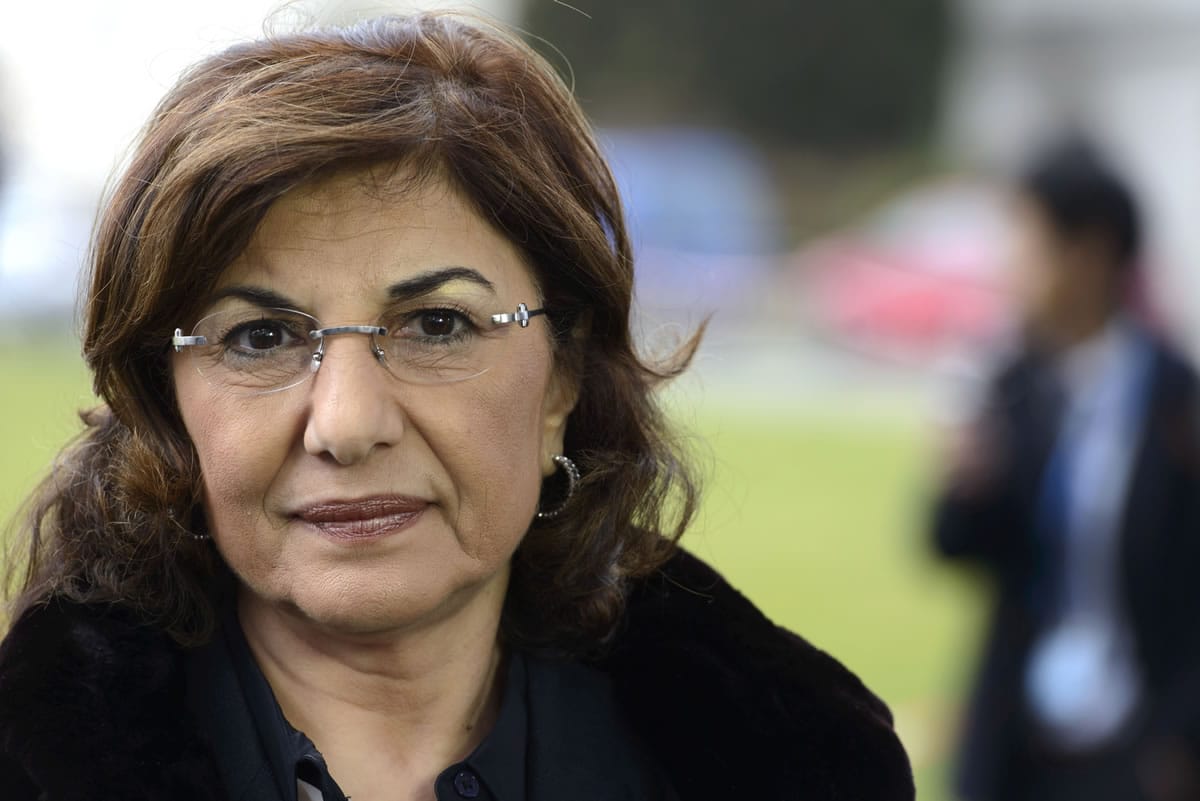GENEVA — Syrian President Bashar Assad’s adviser on Wednesday rejected the opposition’s call for a transitional governing body and suggested that a presidential election set for summer might not take place amid the raging violence.
The comments by Bouthaina Shaaban in an interview with The Associated Press came as U.N. mediator Lakhdar Brahimi announced that the first phase of the Syria peace talks in Geneva will end Friday as scheduled, and that the gap between the government and the opposition remains “quite large.”
“To be blunt, I do not expect that we’re going achieve anything substantial” by Friday, he said Wednesday. “I’m very happy that we are still talking and that the ice is breaking slowly.”
Brahimi said both sides will decide when the second phase of the talks will take place — most likely after a one-week break.
Earlier Wednesday, both sides discussed the thorniest issue: the opposition’s demand for a transitional government in Syria. But Shaaban said it would be difficult to hold a presidential election in Syria, given the fighting, and she rejected a transitional governing body.
“There’s nothing in the world called transitional government. We don’t mind a large government, a national unity government, but I think they invent the wrong term for our people, and then they circulate it in the media,” she said.
The idea of a national unity government has been rejected by the opposition, which insists Assad must step down in favor of a transitional government with full executive powers.
Louay Safi, a spokesman for the opposition’s negotiating team, said the issue of a transitional government was put on the table at the talks for the first time. But he added the government delegation stuck to its demand that putting an end to terrorists was still its No. 1 priority.
“Today, we had a positive step forward, because, for the first time, now we are talking about the transitional governing body, the body whose responsibility is to end dictatorship and move toward democracy and end the fighting and misery in Syria,” he said.
The government seems “more ready to discuss that issue, but still they’re trying to push it to the back of the discussion,” Safi said. “We told them that this has to come first, because nothing else can be achieved before we form a transitional governing body.”
Shaaban said the opposition seemed more willing Wednesday to talk about terrorism, and she described the day’s talks as constructive.
“The problem is that they’re only interested in transitional government. They’re only interested in government, not interested in putting an end to this war,” she said.
Both sides continued to blame each other for the impasse.
The peace conference, intended to forge a path out of the civil war that has killed 130,000 people, has been on the verge of collapse since it was first conceived 18 months ago. The coalition agreed to the Geneva talks only if the focus was on an end to the Assad dynasty, while the Damascus contingent zeroed in on fighting terrorism.
Militants and foreign fighters have infiltrated the rebellion in Syria, dampening Western support for the fighters seeking to topple Assad. Two of the most powerful rebel groups in Syria are listed as terrorist organizations by the U.S. State Department.
The al-Qaida-backed militants do not accept the coalition’s authority and do not feel bound by any agreements reached in Geneva.



